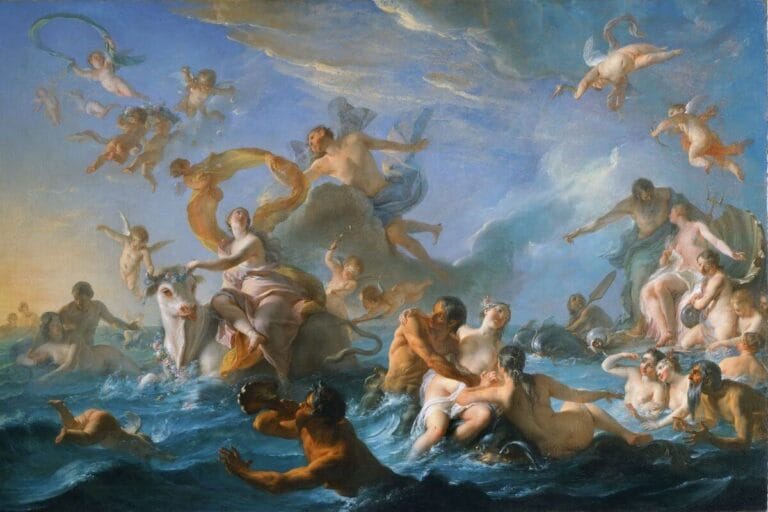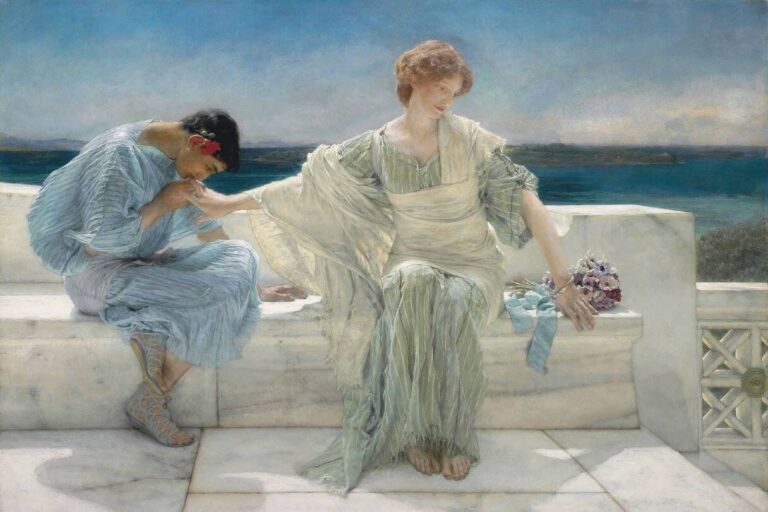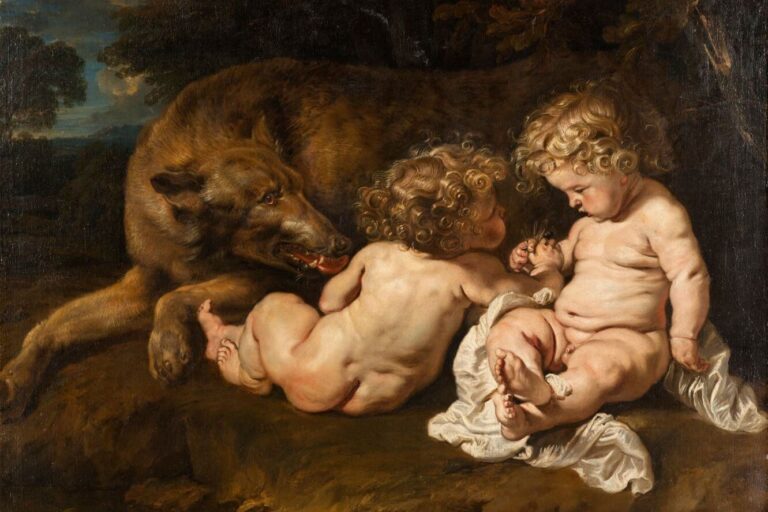An amusing but relatively unknown myth is that of Arion and the dolphin. While the story dates back to at least the 5th century BC, when it is recounted by Herodotus (Histories 1.23-25), it has now largely been forgotten. A possible explanation is that the myth had not been included in Pseudo-Apollodorus’ Bibliotheca, the most authoritative compendium of myths from antiquity. It defined the mythological canon as we know it today, determining what would be remembered and what would be forgotten. So, to set the record straight, let me now tell you the story of Arion.
Arion of Methymna was said to be a renowned singer and poet hailing from the island of Lesbos, credited with inventing the dithyramb, a choral hymn dedicated to Dionysus. To accompany his singing, he played the kithara, an ancient string instrument that gives us the word guitar. As a musician, he was said to be second to none, like Orpheus enchanting everyone who listened to him. He spent the majority of his life in Corinth, where he served at the court of Periander.
One day, Arion decided to set off to visit the lands of Italy and Sicily. Performing throughout these lands, he was admired for his playing and thus showered with riches as a reward. Having made a lot of money, Arion decided it was time to head back home again. He hired a Corinthian ship to take him to Tarentum, but once they were out at open sea, the conspiring crew threatened to throw him overboard. He begged for his life, offering them his possessions, but they would not listen. In an act of desperation, Arion asked them for one last favour: that he may put up his costume and may one last song on the stern of the ship. Eager to hear the best singer of the world, the men agreed and from a distance listened to his charming voice. After he finished the song, however, Arion suddenly threw himself overboard into the sea, where he was thought to have drowned.
At a later time, though, Arion miraculously turned up in Corinth, at the court of Periander. He told the king what had happened: that he had boarded a ship in Italy, that he had been captured by its crew, and that he had thrown himself overboard. When he was about to drown, a dolphin took him on his back and carried him ashore off to Taenarus, from where he walked to Corinth. The king, however, did not believe it and imprisoned him for the time being, awaiting the Corinthian ship mentioned by Arion. When it arrived, Periander summoned its crew to hear their side of the story. Just as they were telling that they left the musician safe in Italy, Arion appeared before them. Astounded, the sailors could no longer deny what was proved against them. Thus, Arion was saved.

Analysis
So, what do we take away from the story? Maybe that we should trust the gods, for they will intervene when it is needed. Or maybe it tells us to face death with dignity, like a Stoic, that it is better to die by our own doing than at the command of others? Actually, when we take a closer look at the context of this digression in Herodotus’ Histories, we can see that it is interjected right before the story about Croesus. The Lydian king, who was then the richest man on earth, deemed himself the happiest of all men. But when he asked the Athenian sage Solon whether he also deemed Croesus the happiest man, Solon warned him that one’s happiness cannot be judged until after one’s death, due to fortune’s changeable nature. And Solon was right, for Croesus did not meet a happy end: he lost his son, his empire, and his life – at the hand of the Persians. Now it becomes clear what Herodotus must have had in mind, for the stories share the idea of a sudden reversal of fortune. What, then, should we take away from it? Perhaps that we should not count ourselves lucky too soon, like Croesus, for we might lose all we have; and likewise that we should never despair when we are still alive. In short: while there’s life, there’s hope. Dum spiro spero.
Further Reading
Our main source for this myth is Herodotus’ Histories 1.23-25, though there are some other ancient sources who mention Arion, such as: Hyginus’ Fabulae 194, Ovid’s Fasti 2.79-128, Pausanias’ Description of Greece 3.25.7, Aulus Gellius’ Noctes Attica 16.19, Lucian’s Dialogi Marini 8, and some testimonia (from the Latin testimonium, ‘a piece of ancient evidence about an author’) by the likes of Eusebius and Proclus. There are also parallels to be found with other stories, such as Homeric Hymn 7 to Dionysus, and the biblical story of Jonah and the Whale (Jonah 1-2), which even Augustine of Hippo calls just as incredible as the story of Arion (The City of God 1.14). To conclude, there is lovely poem about Arion attributed to Edmund Spenser.
Then was there heard a most celestial sound
Of dainty music which did next ensue,
And, on the floating waters as enthroned,
Arion with his harp unto him drew
The ears and hearts of all that goodly crew;
Even when as yet the dolphin which him bore
Through the Aegean Seas from pirates’ view,
Stood still, by him astonished at his love,
And all the raging seas for joy forgot to roar.



